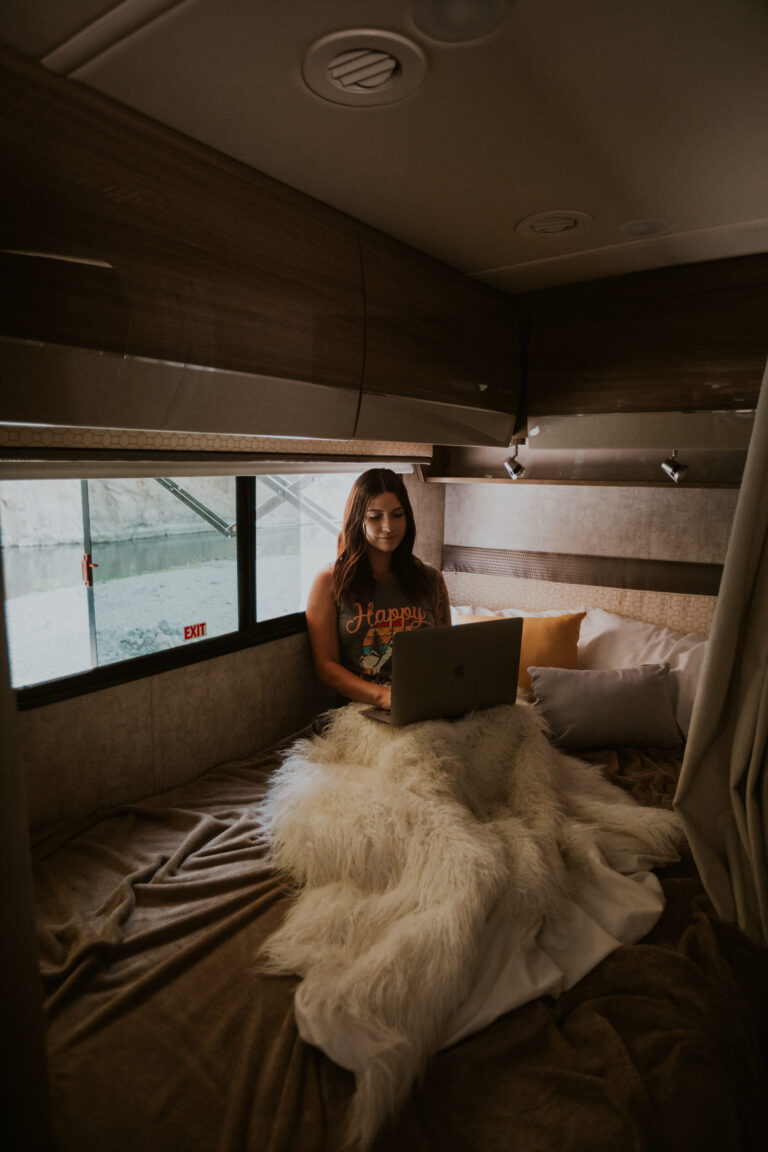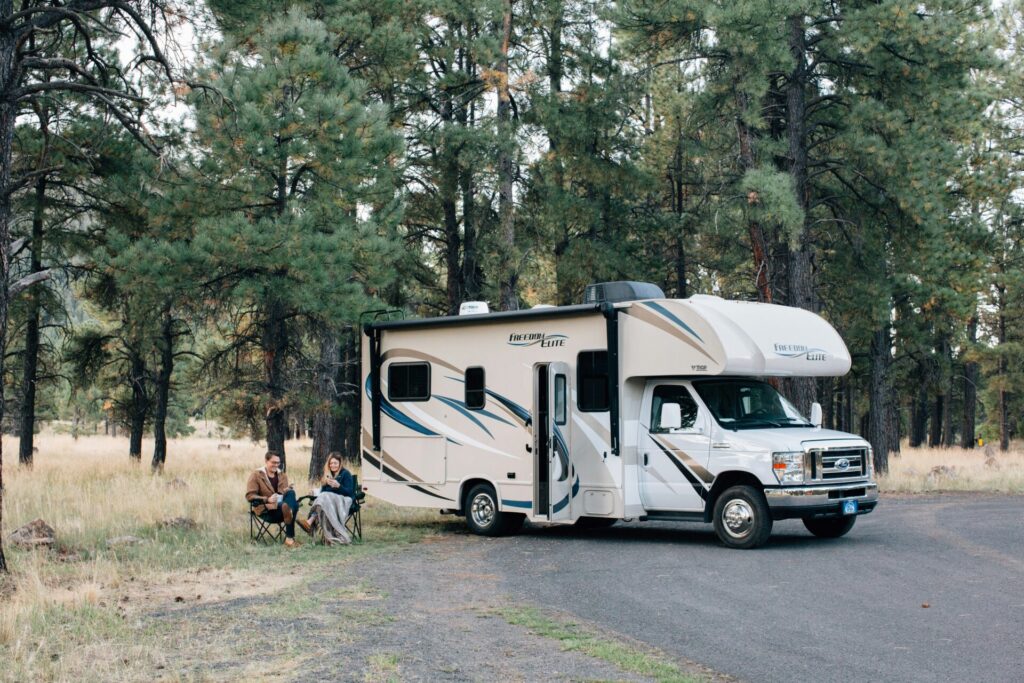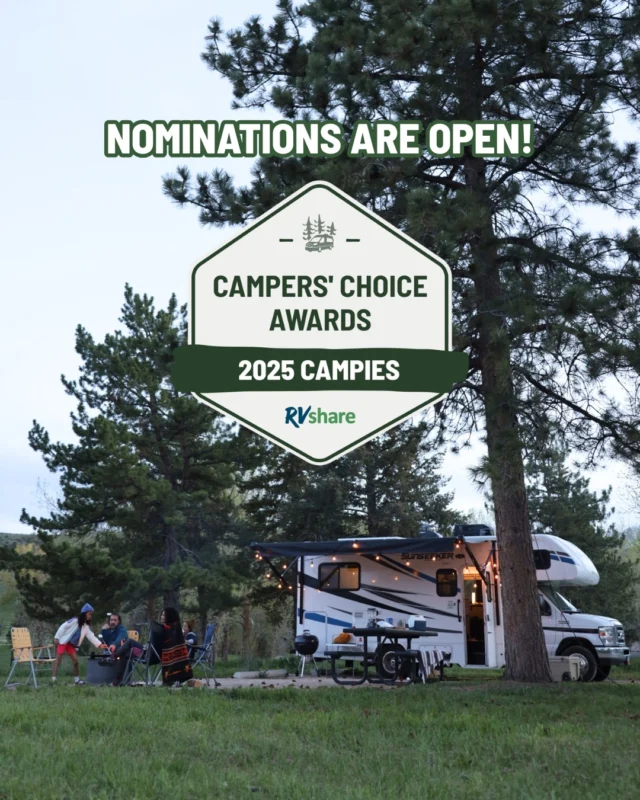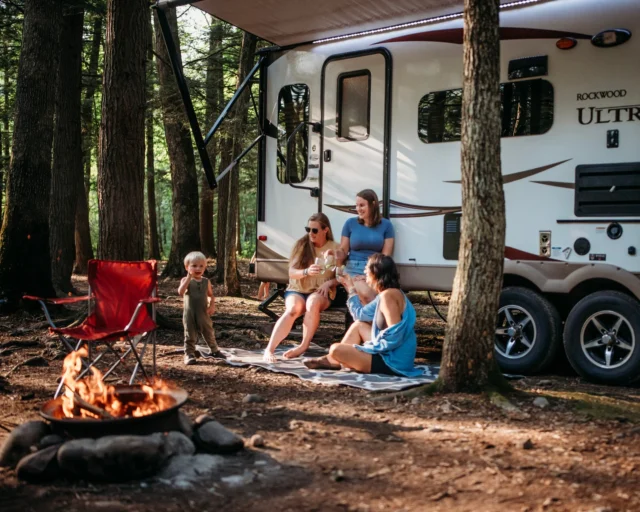
If you are considering RVing full time you might be wondering, “How do full-time RVers establish residency?” Unfortunately, our country’s system isn’t exactly set up for us intrepid wanderers. If you want to vote in the next election, register your vehicle, file taxes, or even get health care you really do need to set up RV permanent residence somewhere.
The good news? It’s totally possible to do. Here’s what you need to know.
This post contains affiliate links. RVshare may receive compensation if you make a purchase after clicking on a product link.
How to Officially Establish Residency
First you will need to have an official address (more on that later). Once that is done, you can apply for residency of the state your mailbox is located in. Keep in mind that you will need to spend at least a little bit of time in the state in order to take care of legal documents and paperwork associated with establishing residency.
Establishing RV permanent residence requires that you take several steps:
- You need a driver’s license from that state, which must be done in person and may require taking the driver’s test again
- You must register and insure your vehicle in that state, which can sometimes be done by mail and over the phone but may also require a trip to the DMV.
- You should register to vote in that state, which will sometimes be done at the DMV. Once you’re registered, you can vote in national elections from afar with an absentee ballot, but laws regarding local elections vary.
- You should acquire your health insurance through that state unless you’re already covered in some other fashion.
- You will likely want to establish professional and social connections in that state such as doctors, dentists, and insurance agents.
- You might consider hiring an attorney to oversee your case and guide you through the process since domicile is determined by intent and regulations can change.
- In some states, you will need to file an Affidavit of Domicile with the court to share your intent. Again, services like Escapees or an attorney can help you with this.
Establishing an Address
As mentioned above, the first thing you will need to do in order to establish RV permanent residence in any state is acquire an address in the state. A post office box is the first thing that comes to mind for many trying to solve this problem. Unfortunately, it simply will not work for establishing residency, but there is another option that will work, even for us nomads.
Sign up For a Mail Forwarding Service
When you ask an RVer, “How do full time RVers establish residency?” The most common answer you’ll hear is that they have a mail forwarding service.
A mail forwarding service provides you with a physical address where all your mail will be sent while you are on the road. The service holds your mail for you and then sends it at your convenience to the address of your choice.
In addition to being a great place to have mail sent, the physical address you are given can be used for registering your vehicle, voting, and everything else you need to establish your residency.
Different services offer different mail forwarding and viewing options. Some things you might look for include:
- The ability to view the sources of incoming mail online and decide which, if any, you want to have sent to you as a hard copy.
- The ability to to view copies of the actual pieces of mail, which are kept in a virtual storehouse of your incoming letters for future reference.
- Services that sort and destroy junk mail for you.
- Services that assist with establishing residency.
- Companies that provide services, benefits, and discounts beyond mail forwarding.
- Cost and fees
Popular Mail Forwarding Services
Although there are many reputable choices, the following are a few of the most popular due to their convenience and added services.
Escapees RV Club
Escapees RV Club is a top choice for RVers looking for a mail-forwarding service that provides residency assistance. With an excellent reputation and supporting reviews, they offer mail forwarding to any location in North America. Your mail is sent to them, then when you are ready, simply notify them of when and where you would like it sent to. You can also request to have your mail forwarded on a regular schedule.
Traveling Mailbox
Traveling Mailbox services a broad range of states and provides most contemporary features. They provide both types of online viewing and retain digital copies for your later use.
My RV Mail
A relatively low cost option, My RV Mail is a good option for budget travelers. The company provides a physical Florida based address that can be used for mail and residency purposes.
Other Options
Other popular mail forwarding services out there include:
- St. Brendan’s Isle — Florida address
- Texas Home Base — Texas address
- U.S. Global Mail — Texas address
- Dakota Post — South Dakota address
- Your Best Address — South Dakota address
- USA2Me Texas address
- America’s Mailbox South Dakota address
- My Dakota Address South Dakota address

Best States to Establish State Residency
Of course, you will also be responsible for paying taxes, but this is where things get interesting. As you probably know, not every state actually assesses income tax, and vehicle registration fees vary, too. This means you could potentially save thousands of dollars just by choosing the right place to have your license printed.
There are three states that are very popular amongst full-time RVers because they offer substantial savings when you choose to establish your residency within them. These include: Florida, Texas, and South Dakota.
All three of these states share the benefit of not having a state income tax. Which obviously means you’ll save a bunch of money right from the get-go. They also have flexible homeschooling laws and low rates on vehicle registration and insurance (although again, the exact fees will vary).
There are other benefits to becoming a resident in each of these states. For example, Florida residents get great discounts at Florida State Parks, Disney World and other attractions, and even on cruises. Meanwhile, South Dakota is one of the easiest states to establish residency in, as you only need to prove you stayed in the state for one night. You’ll have to take a look at the various benefits and decide which ones most benefit you personally.
Other Options for Residency
Of course, if you feel strongly attached to your own state or don’t want to have to deal with doing any in-person dealings in one of these places, you can establish residency anywhere else as long as there is a mail forwarding service or other eligible mailing address available to you. The other states that don’t have an income tax, however, are Alaska, Washington, Nevada, and Wyoming.
There you have it, everything you need to know about how to establish an RV permanent residence. Once that’s done, you’ll be able to hit the road and enjoy the adventure!
Want to try RVing before you commit to going full time? Consider renting an RV to get a feel for the experience.






